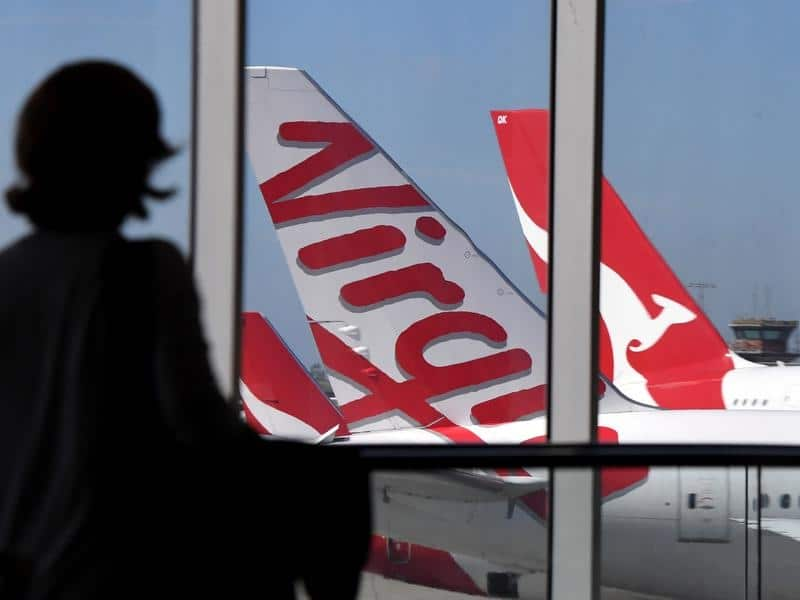Qantas has rejected calls from engineers to ground its Boeing 737 fleet as "completely irresponsible", after claims a second plane was found with cracking on its wing structure.
The US Federal Aviation Administration earlier this month ordered airlines to check any 737s that had completed more than 30,000 take-offs and landings, known as cycles, for cracks.
Qantas on Wednesday said it had found one example of cracking in an aircraft with just under 27,000 cycles and it had been removed from service for repair.
But the Australian Licensed Aircraft Engineers Association on Thursday said a second Qantas 737-800 was found overnight with a "cracked primary wing structure".
"These aircraft should be kept safe on the ground until urgent inspections are completed," association secretary Steve Purvinas said in a statement.
"Boeing had previously thought the cracks were only occurring on aircraft with over 35,000 landings, the issue has now been identified on two Qantas aircraft with as few as 27,000 landings and Qantas are yet to inspect the majority of its 737 fleet."
But Qantas head of engineering Chris Snook said the airline would never operate a plane unless it was "completely safe to do so".
The association's call to ground the fleet was "completely irresponsible", Mr Snook said in a statement.
"Even when a crack is present, it does not immediately compromise the safety of the aircraft."
Qantas said none of its 737s had reached the 30,000 cycle mark but it would have inspected 33 aircraft with more than 22,600 cycles by Friday.
The airline operates 75 Boeing 737 aircraft in total.
"As other airlines have done when they have found cracks, Qantas will remove aircraft from service so they can be repaired," Mr Snook said.
"We'll provide a further update once the checks are complete."
The Civil Aviation Safety Authority says the cracking issue is a serious problem that needs a serious response.
But spokesman Peter Gibson says there's "no evidence" to suggest the whole Qantas fleet should be grounded.
"There's no evidence at this point of cracks appearing in younger aircraft - obviously if they do, the inspection regime may have to be rethought,' Mr Gibson told AAP. "People who fly should be very confident that this is evidence of the aviation safety system working."
"People who fly should be very confident that this is evidence of the aviation safety system working."

Qantas and Virgin planes seen at Sydney airport. Source: AAP
But Mr Purvinas isn't convinced.
The Australian Licensed Aircraft Engineers Association wants all 75 aircraft checked "because it's unknown when these cracks are starting to develop", he said, adding it only took one hour per aircraft to carry out the check.
Virgin Australia has already inspected its 19-strong fleet of Boeing 737s and no cracks were found.
Stephen Fankhause, who is Deputy Department Chair, Aviation at Swinburne University of Technology said: "The cracks that have been found in the B737 NG’s are in an area called the 'pickle fork'."
"The pickle fork connects the centre section of the fuselage to the rear spar in the wing," he said.
"The rear spar helps the wing react to lift loads.
"There is an airworthiness directive issued by the FAA to inspect this area for cracks on all B737 aircraft if the aircraft has undergone 30,000 flights or more.
"There are two pickle forks on the rear spar. The inspection should take about an hour for each aircraft.
"The design is what is called 'fail-safe' which means the structure can tolerate some level of damage or degradation for example due to cracking.
"The inspection period is set to ensure the cracks do not continue to grow to a dangerous length and then significantly compromise the strength of the airframe.
"Modern Jet transport aircraft are all designed to be damage tolerant and this ensures the integrity of the airframe provided the directed inspections are carried out when specified and repairs are made if cracks are found."

